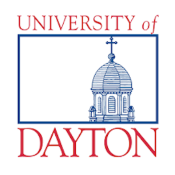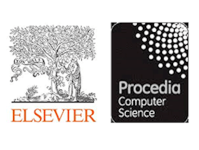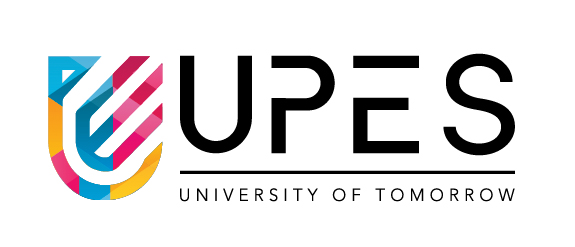

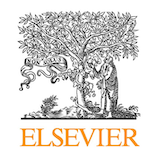
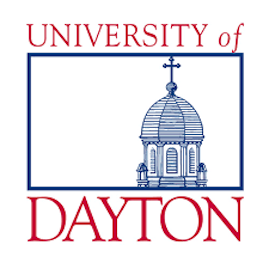
International Conference on Machine Learning and Data Engineering
All accepted papers will be published in Procedia Computer Science Journal, Elsevier
About ICMLDE 2024
The 3nd International conference on Machine Learning and Data Engineering (ICMLDE 2024) is an international venue for the presentation of original research findings, as well as the exchange and dissemination of creative, practical development experiences in various engineering domains. The conference draws researchers and application developers from a wide range of artificial and data engineering related areas along with their algorithms and applications of current issues of almost all branches of Engineering and Technology.
This conference aims to broaden its scope in the areas of Machine Learning and Data Engineering by including expert speeches and presentations from young researchers in each session. The conference aims to enhance the state-of-the-art in Machine Learning and Data Engineering, as well as other promising areas of computing, by encouraging fresh, high-quality research discoveries and inventive solutions to tough machine learning challenges. Researchers, academicians, and professionals from all over the world are invited to submit original, unpublished research papers from all perspectives, including theory, practice, experimentation, and review papers highlighting specific research domains for presentation in the conference's technical sessions.
The conference will create a cross-disciplinary summit that will bridge the gap between departmental, institutional, industrial, public and private research organizations, and global barriers, allowing for the integration of research and education in the emerging field of Machine Learning and Data Engineering.
"ICMLDE 2022 received more than one thousand manuscripts worldwide including Algeria, Bangladesh, China, Czechia, Eswatini, Ethiopia, Finland, France, India, Iran, Iraq, Ireland, Italy, Jordan, Korea, The Democratic People's Republic of Malaysia, Morocco, Nigeria, Norway, Oman, Peru, Philippines, Saudi Arabia, Slovakia, South Korea, Spain, Sri Lanka, Switzerland, Turkey, United Arab Emirates, United Kingdom, United States, Uzbekistan, and Viet Nam. A large number of high-quality submissions were received from them 273 were accepted for publication in Procedia Computer Science Journal, Elsevier. All papers have been published in Procedia Computer Science, Elsevier, Vol 218, 2023. All accepted papers are available online at www.sciencedirect.com and https://dl.acm.org/. All accepted papers have been indexed in the SCOPUS database. ICMLDE 2022 was sponsored by SERB, Department of Science and Technology, Government of India."
"The ICMLDE 2023 garnered significant attention, with more than 1000 submissions from over 3,500 contributors spanning across the globe. The submissions were from 45 countries, including India, United States, Russia, Oman, Sri Lanka, Hungary, Nigeria, Saudi Arabia, Viet Nam, Bangladesh, Canada, UK, Malaysia, Australia, Thailand, Ethiopia, Morocco, Norway, Philippines, Spain, Turkey, South Africa, Tunisia, China, France, Zimbabwe, Germany, Cyprus, Czechia, Poland, UAE, Algeria, Finland, Iraq, Netherlands, Saint Barthelemy, Bahrain, Ecuador, Jordan, Peru, Singapore, Switzerland, Uzbekistan, South Sudan. A very large number of high-quality submissions were received from them 324 were accepted for publication in Procedia Computer Science Journal, Elsevier.All papers have been published in Procedia Computer Science, Elsevier, Vol 235, 2024. All accepted papers are available online at www.sciencedirect.com. All accepted papers have been indexed in the SCOPUS database. ICMLDE 2023 was sponsored by SERB, Department of Science and Technology, Government of India, IBM and Ministry of Electronics and Information Technology, India."
Important Dates
| Important Dates | |
| Last Date of Paper Submission | 15th August 2024 |
| Acceptance Notification Deadline | 15th October 2024 |
| Camera Ready Manuscript Deadline | 20th October 2024 |
| Conference Registration Deadline | 30th October 2024 |
| Conference Date | 28th-29th November 2024 |
Call for Papers
Original contributions from researchers describing their original, unpublished, research contribution which is not currently under review by another conference or journal and addressing state-of-the-art research are invited to share their work in all areas of ICMLDE 2024 but not limited to the conference tracks.
Conference Sub Themes and Tracks:
| Machine Learning Foundations | Deep Learning and Data Engineering: | |
|
|
|
| Machine Learning and Data Engineering | APPLICATIONS | |
|
|
Conference Committees
Vasant Honavar, Penn State University, USA
Panos Liatsis, Khalifa University,UAE
Selwyn Piramuthu, University of Caen Normandy, France
Rubén González Crespo, Universidad Internacional de La Rioja, Spain
Mojtaba Ahmadiehkhanesar, University of Nottingham, UK
Zafer Bingül, Kocaeli University, Turkey
Gan, Christopher, Lincoln University, New Zealand
João Paulo Papa, São Paulo State University, Brazil
Jaime Lloret Mauri, Polytechnic University of Valencia, Spain
Yaw-Ling Lin, Providence University, Taiwan
Joseph Tan, McMaster University, Canada
Larisa Ivașcu, Politehnica University of Timisoara, Romania
Sheng-Lung Peng, National Taipei University of Business, Taiwan
Huchang LIAO, Sichuan University, China
Xiao-Zhi Gao, University of Eastern Finland, Finland
Kalpic, Damir, University of Zagreb, Croatia
A Bretto, University of Caen Normandy, France
Balas Valentina Emilia, Balas Valentina Emilia, Aurel Vlaicu” University of Arad, Romania
Seifedine Kadry, Noroff University College, Norway
Danilo Pelusi, Aurel Vlaicu” University of Arad, Romania
David Taniar, Monash University, Australia
Pilipczuk, Olga, Szczecin University, Poland
Grzegorz Chodak, Wroclaw University of Science and Technology, Poland
Hosam El-Ocla,, Lakehead University, Canada
Scientific Committee Chairs
Hosam El-Ocla, Lakehead University, Canada
Tariq Ahmed Albusyuni, The University of Western Australia, Australia
Syed Afaq Shah, The University of Western Australia
Pelusi, Danilo, University of Teramo, Italy
Seifedine Kadry, Noroff University College, Norway
Jacob Scharcanski, Federal University of Rio Grande do Sul
Gianni D'Angelo, University of Salerno, Italy
Tein, Weng, Providence University, Taiwan
Abawajy, Jemal, Deakin University, Australia
Raja Kumar Murugesan, Murugesan, Taylor’s University, Malaysia
Suman Deb, National Institute of Technology, Agartala, India
Scientific Committee Members
Grzegorz Chodak, Wroclaw University of Science and Technology, Poland
Hosam El-Ocla, Lakehead University, Canada
Srinivas Katkoori, University of South Florida, USA
Xinrui Cui, University of North Texas, USA
Pao-Ann Hsiung, National Chung Cheng University, Taiwan
Gianni D'ANGELO, University of Salerno, Italy
Adam Wasilewski, Wroclaw University of Science and Technology, Poland
Omar Hussain Omar Alhazmi, Taibah University, Saudi Arabia
Priyanka Kumar, University of Texas, San Antonio, USA
Mukul Joshi, Nvidia, Santa Clara, CA, USA
Nagentrau Muniandy, Taylor’s University, Malaysia
Tariq Ahmed Albusyuni, King Fahd University Of Petroleum and Minerals, Saudi Arabia
Oluwafemi Oriola, Adekunle Ajasin University, Nigeria
Imran Khan, Sultan Qaboos University, Oman
Fatemeh Daneshfar, University of Kurdistan, Iran
Seifedine Kadry, Noroff University College, Norway
Jacob Scharcanski, Federal University of Rio Grande do Sul (UFRGS), Brazil
Lochandaka Ranathunga, University of Moratuwa, Sri Lanka
Gautam Srivastava, Brandon University, Canada
Gadadhar Sahoo, IIT(ISM) Dhanbad, India
Syed Afaq Shah, University of Western Australia, Australia
Amaal Al-Hashimy, Sultan Qaboos University, oman
Lyes BENYOUCEF, Domaine Universitaire de Saint Jérôme, France
Dante Barone, Federal University of Rio Grande do Sul, Brazil
Mohamed Firdhous, University of Moratuwa, Sri Lanka
Dickson Chiu, University of Hong Kong, Hong Kong
Rahimeh Neamatian Monemi, University of Southampton, UK
Buriro Attaullah, University of Bolzano, Italy
Saminda Premaratne, University of Moratuwa, Sri Lanka
Raja Kumar Murugesan, TAYLOR’S UNIVERSITY, Malaysia
Olga Pilipczuk, University of Szczecin, Poland
Shahin Gelareh, University of Southampton, UK
Quanjin Ma, Universiti Malaysia Pahang, Malaysia
Gianni D'Angelo, University of Salerno, Italy
Tor-Morten Grønli, Kristiania University College , Norway
N G J Dias, University of Kelaniya, Sri Lanka
Amlan Basu, University of Strathclyde, UK
Bruno Carpentieri, Free University of Bozen-Bolzano, Brazil
Felix Ola Aranuwa, Adekunle Ajasin University, Nigeria
Predrag Stanimirovic, University of Niš,Serbia
Olusola AJAYI, Adekunle Ajasin University, Nigeria
Byung-Woo Hong, Chung-Ang University, Korea
Akingbesote Alaba, Adekunle Ajasin University, Nigeria
Hoda A.Alkhzaimi, New York University, Abu Dhabi
Felix ARANUWA, Adekunle Ajasin University, Nigeria
Siyamalan Manivannan, University of Jaffna, Sri Lanka
Syed Afaq Shah, The University of Western Australia,
Saban Ozturk, Amasya Üniversitesi, Turkey
Chou Pui May, Taylor's University, Malaysia
Antonino Galletta, University of Messina, Italy
Mun Hou Kit, Taylor's University, Malaysia
Gamini Wijayarathna, University of Kelaniya, Sri Lanka
Dariush Ebrahimi, Lakehead University, Canada
Marcin Woźniak, Silesian University of Technology, Poland
Xu An Wang, Engineering University of People’s Armed Police, China
Zena Khalil, University of Al-Qadisiyah,Iraq
Bruno Carpentieri, Free University of Bozen-Bolzano, Italy
Wilver Auccahuasi Aiquipa, Universidad Privada del Norte, Peru
Tabatabaei Yazdi, Nazi Massey University, New Zealand
Hamza Zidoum, Sultan Qaboos University, Sultanate of Oman
Ngatchou New Jersey City University, USA,
Ali Kadhum Idrees, University of Babylon, Iraq
Карпов Илья, HSE University, Russia
Grzegorz Chodak , Wroclaw University of Science and Technology, Poland
Natalia Kryvinska, Comenius University in Bratislava, Slovakia
Lamia HAMZA, University A-Mira, Algeria
Hamza Zidoum, Sultan Qaboos University, Oman
Danilo Pelusi, University of Teramo, Italy
Sattam Almatarneh, Middle East University, Jordan
Piramuthu Selwyn, University of Florida,USA
Olga Fedevych, Lviv Polytechnik National University, Ukraine
Hårek Haugerud, Oslo Metropolitan University, Norway
Ram Kumar Karsh, National Institute of Technology, Silchar,India
Jiang,Xiaohong, Zhejiang University, China
Sarkar Nurul, Auckland University of Technology,New Zealand
Justin Bradley, University of Nebraska-Lincoln, USA
Vivek Tiwari, International Institute of Information Technology, Raipur,India
Sandeep Samantaray, National Institute of Technology, Srinagar,India
Cheng Zixue, University of Aizu,Japan
Jack Erskine, University of Canterbury, New Zealand
Zoltan Mann, University Duisburg-Essen, Germany
Suman Halder, NIT Durgapur, India
Vanesa Daza, Universitat Pompeu Fabra, Spain
Muhammad Fazal Ijaz, Sejon University Seoul, South Korea
Suman Deb, National Institute of Technology, Agartala,India
Antonio Mana Gomez, University of Malaga, Spain
Monalisa Ghosh, National Institute of Technology, Durgapur,India
M.M. Dastani, Utrecht University, Netherlands
Ahmed Albarbari, Arab Open University, Saudi Arabia
Witold Maranda, Lodz University of Technology, Poland
Jyoti Prakash Singh, National Institute of Technology, Patna,India
Amir Kamil, University of Michigan, USA
Lars Braubach, University of Hamburg, Germany
Ahmad Neyaz, University of Electronic Science and Technology, China
Ashar Khan, Sultan Qaboos University, Oman
NaMark Tamene, Debere Markos University, Ethiopia
Haibo Zhang, University of Otago, New Zealand
Riyadh Baghdadi, New York University, Abu Dhabi
Ciprian Dobre, University Politehnica of Bucharest, Romania
Vinh Truong Hoang, Nguyen Tat Thanh University,Vietnam
Hyun Ki Hong, Chung-Ang University, Sourh Korea
Ashish Dutta, Malaviya National Institute of Technology, India
Sowmya V, Amrita Vishwa Vidyapeetham, India
Gareth Callanan, Lund University, Sweden
Namita Mittal, Malaviya National Institute of Technology, Jaipur
Vincent Peter Magboo, University of the Philippines Manila, Philippines
Mercado Rizza DC., University of the Philippines Los Baños,Philippines
Shuran Song, Columbia University, USA
Shruti Jain, Jaypee University of Information Technology,India
Ella Pereira, Edge Hill University, UK
Wu Suzhen, Xiamen University,China
Debbie Perouli, Marquette University, USA
Natalia Kryvinska, University of Vienna, Austria
Wang Xiaolong, Harbin Institute of Technology, China
Jeffrey Blankenship, Central Connecticut State University, USA
Tannistha Pal, National Institute of Technology, Agartala,India
Rifat Shahriyar, Bangladesh University of Engineering and Technology, Bangladesh
Fatemeh Daneshfar, University of Kurdistan,Iran
Ehsan Ahmad, Saudi Electronic University, Saudi Arabia
Agusti Solanas, University Rovira i Virgili, Spain
Gopalakrishnan E.A, Amrita Vishwa Vidyapeetham, India
S.R. Liyanage, University of Kelaniya, Sri Lenka
Vera Pantelic, McMaster University, Canada
Neetu Sardana, Jaypee Institute of Information Technology,India
Siamac Fazli, Nazarbayev University, Kazakhstan
Huang Xinyi, Fujian Normal University,China
Gelareh Shahin, Portsmouth Business School, UK
Hassan Mostafa, Al-Baha University, KSA
Aneta Poniszewska-Marańda, Lodz University of Technology, Poland
Mitchell McEwan, Macquarie University, Australia
Inhi Kim, Kongju National University, South Korea
Bo Liu, Massey University, New Zealand
Hsiung Pao-Ann, National Chung Cheng University,Taiwan
Enn Ounapuu, Tallinn University of Technology, Estonia
Gaurav Hajela, Maulana Azad National Institute of Technology, India
Sadia Sharmin, Bangladesh University of Engineering and Technology, Bangladesh
Kamińska Anna, Wrocław University of Science and Technology, Poland
Emily Graetz, University of Michigan, USA
Meenakshi Sood, National Institute of Technical Teachers Training & Research, India
Ivanna Droniuk, Lviv Polytechnik National University, Ukraine
Amjad Mehmood, Kohat University of Science & Technology, Pakistan
P. Karthikeyan, National Chung Cheng University,Taiwan
Tauseef Khan, Aliah University,India
Junier Oliva, University of North Carolina, USA
Chiranji Lal, Vellore Institute of Technology,India
Vrijendra Singh, Indian Institute of Information Technology,India
Salimur Choudhury, Lakehead University, Canada
Yasmin Fathy, University of Cambridge, UK
Seifedine Kadry, Beirut Arab University Lebanon,
Jakub Swacha, University of Szczecin, Poland
Burns John, Clark University,USA
Nasser Alzeidi, Sultan Qaboos University, Oman
Bol Roland, Uppsala University, Sweden
JIANG Lingxiao, Singapore Management University, Singapore
Marcin Wozniak, Silesian University of Technology, Poland
Mudasir Bhutt, University of Kasmir, India
WANG Hai, Singapore Management University, Singapore
Sagonas Konstantinos Konstantinos, Konstantinos , Sweden
Laabadi Soukaina, Hassan II University - Casablanca, Morocco
Mehmet Can Vuran, University of Nebraska-Lincoln, USA
Chernyi Sergei , Admiral Makarov State University of Maritime and Inland Shipping, Russia
Prashant Kumar, National Institute of Technology, Durgapur,India
Lina Barilienė, Vytautas Magnus University, Lithuania
Mette Kaufmann Andersen, Aalborg University, Denmark
Mulugeta Libsie, Addis Ababa University, Ethiopia
Vytautas Bukšnaitis, Vytautas Magnus University, Lithuania
Leszek Borzemski, Wroclaw University of Science and Technology, Poland
James Wills, Oakton community college, USA
You Ilsun, Soonchunhyang University,South Korea
Serge Gaspers, University of New South Wales, Australia
U. Srinivasalu Reddy, NIT, Trichy,India
Mayuri Kharde, National Institute of Technology, Tiruchirappalli,India
Suman Deb, National Institute of Technology, Agartala,India
Adrian Iftene, Alexandru Ioan Cuza University of Iasi, Romania
Daniel Burmester, Victoria University of Wellington, New Zealand
De Carvalho Andre Ponce de Leon F., Universidade de São Paulo,Brazil
Prabir Saha, National Institute of Technology, Meghalaya,India
D'Angelo Gianni, University of Salerno,Italy
Hossam Abdel Salam Diab, Taibah University, Saudi Arabia
Vinh Truong Hoang, Ho Chi Minh City Open University, Vietnam
Bhuiyan Md, Fordham University,USA
Maniaol Rozano S., University of the Philippines Los Baños,Philippines
Wan Lanjun, Hunan University,China
David Brander, Technical University of Denmark, Denmark
Nor Ilia Anisa Binti Aris, Taylor's University, Malaysia
Debasis Tripathy, National Institute of Technology, Silchar,India
Giovanni Bacci, Aalborg University, Denmark
James Papademas, Oakton community college, US
Oriola Oluwafemi, Adekunle Ajasin University, Nigeria
Tianjia Shao, Zhejiang University, China
Byung Jeong Lee, University of Seoul Engineering, South Korea
Zena H. Khalil, University of Al-Qadisiyah,Iraq
Xue Chun Jason, City University of Hong Kong,Hong Kong
Roopesh Kevin Sungkur, University of Mauritius, Mauritius
Pardeep Singh, National Institute of Technology,India
Boujemâa Achchab, Hassan 1er University, Morocco
Frida Pemer, Oslo Metropolitan University, Norway
Roland Depratti, Central Connecticut State University, USA
Ohue Masahito, Tokyo Institute of Technology, Japan
Tinku Singh, Indian Institute of Information Technology,India
Navaux Philippe O. A., Federal University of Rio Grande do Sul,Brazil
Ajmer Saini, Deenbandhu Chhotu Ram University of Science and Technology, India
Shen Liping, Shanghai Jiao Tong University, China
Kiki Adhinugraha, La Trobe University, Australia
Wilver Auccahuasi, Universidad Continental, Peru
Mehofer Eduard, University of Vienna,Italy
Mara Abel, Universidade Federal do Rio Grande do Sul, Brazil
Nallapaneni Manoj Kumar, City University of Hong Kong, Hong Kong
Ali Thaeer Hammid, Imam Ja’afar Al-Sadiq University, Iraq
Jin-Cheol Heo, Keimyung University, South Korea
Koppala Guravaiah, Indian Institute of Information Technology Kottayam, India
Chernyi Sergei, St.Petersburg State Marine Technical University,Russia
Sajjad Mahmood, King Fahd Univeristy Of Petroleum And Minerals, Saudi Arabia
Yen Hsu-Chun, National Taiwan University,Taiwan
Pradeep Kumar, National Institute of Technology,India
Chodak Grzegorz, Wrocław University of Science and Technology, Poland
Viviane Pereira Moreira, Federal University of Rio Grande do Sul, Brazil
Oh Kai Siang, Taylor's University, Malaysia
Y. Lig Lin, Providence University, Taiwan
Luis Soares Barbosa, University of Minho, Portugal
Scott Williams, Bradley University, USA
Ashis Kumar Das, Uttar Banga Krishi Viswavidyalaya, India
Muhammad Awais Javed, COMSATS,Pakisthan
Paramvir Singh, University of Auckland, New Zealand
Ashish Kumar Sahu, National Institute of Technology, Jamshedpur,India
Fabrício Simeoni de Sousa, University of Sao Paulo, Brazil
Nasser Tabook, Sultan Qaboos University, Oman
Kim Jindae, Seoul National University of Science & Technology,South Korea
Rajkumar Rajasekaran, Vellore Institute of Technology,India
Shimaa Abdullah Nagro, Saudi Electronic University, Saudi Arabia
Diego Molla Aliod, Macquarie University, Australia
Nir Lipovetzky, The University of Melbourne, Australia
Mehmood Amjad, Kohat University of Science and Technology,Pakisthan
Pranitha Boddu, National Institute of Technology, Warangal,India
Roopesh Kevin Sungkur, University of Mauritius, Mauritius
Meng Weizhi, Technical University of Denmark,Denmark
Wha Sook Jeon, Seoul National University, South Korea
Aliyu Olubunm, Adekunle Ajasin University, Nigeria
Aneas Riener, Technische Hochschule Ingolstadt, Germany
Krishna Chaitanya Rao, University of Massachusetts Amherst, USA
Sudeep Tanwar, Nirma University, India
Eswaran Balamurugan, University of Africa, Nigeria
Dawid Polap, Silesian University of Technology, Poland
Xu Zenglin, Harbin Institute of Technology, China
Euripides Petrakis, Technical University of Crete, Greece
Pardeep Kumar, Jaypee University of Information Technology, India
Lesourd Martin, Clark University,USA
Elias Bareinboim, Columbia University, USA
Satya Prakash Sahu, National Institution of Technology, Raipur,India
Yasir Zaki, New York University, Abu Dhabi
Angelo Spognardi, "La Sapienza" University of Rome, Italy
Flávio Rech Wagner, Federal University of Rio Grande do Sul, Brazil
Bach Le, The University of Melbourne, Australia
Ashwani SHARMA, Insight Biosolutions, France, Pépinière d'entreprises Biopôle
Arjun Singh Saud, Tribhuvan University, Nepal
Imran Memon, Zhejiang University, China
Liu Xiao, China Normal University,China
Akansha Singh, Bennett University,India
Alexey Neznanov, HSE University, Russia
Grønli Tor-Morten, Westerdals Oslo School,Norway
Vivek Tiwari, International Institute of Information Technology, Naya Raipur,India
Michael J Dinneen, University of Auckland, New Zealand
Xunli Fan, Northwest University, China
SEUNG LEE, NC State University, USA
Remy Dupas, Université de Bordeaux, France
Maria Ganzha, Warsaw University of Technology, Poland
Jacob T Prem, Sathyabama Institute of Science and Technology,India
Sushila Palwe, MIT World Peace University, India
De Sousa Fabricio Simeoni, University of São Paulo,Brazil
Payam Ebrahimi, Vrije Universiteit Brussel, Belgium
Samira Bahia, Deakin University, Australia
Nikolaos Triandopoulos, Stevens Institute of Technology, USA
Tian Hui, Beijing Jiaotong University,China
S B Goyal, City University, Malaysia
Maria Ganzha, Warsaw University, Poland
Kise Kenji, Tokyo Institute of Technology, Japan
Ujjwal Manikya Nath, Jorhat Engineering college, India
Vasilios Katsikis, National and Kapodistrian University of Athens, Greece
Velliangiri S, SRM Institute of Science and Technology, Tamilnadu,India
Goutam Sanyal, National Institute of Technology, Durgapur,India
Yaregal Assabie, Addis Ababa University, Ethiopia
Ram Chandra Bhushan, MNNIT Allahabad, India
A. Ramanan, University of Jaffna, Sri Lanka
Alok Singh, University of Oxford, UK
Emil Pricop, Universitatea Petrol-Gaze din Ploiești, România
Khalimjon Ergashevich Khujamatov, Tashkent University of Information Technologies,Uzbekistan
Dolly Jorgensen, University of Nevada, USA
Lov Kumar, Birla Institute of Technology and Science, India
Auday Al-Dulaimy, Mälardalen University, Sweden
Jasbir Kaur Dhaliwal, Monash University, Malaysia
Imran memon, zhejiang university , China
Yoohwan Kim, University of Nevada, USA
Pilipczuk Olga, Szczecin University,Poland
Jacob Renzo Bauer, Norwegian University of Science and Technology, Norway
Prafullata Auradkar, PES University, India
Costin Badica, Noroff University College, Norway
Subarna Shakya, Tribhuvan University, Nepal
Arun Kumar, National Institute of Technology, Rourkela,India
Li Fang, Nanyang Technological University, Singapore
Preethi Ananthachari, Woosong University,South Korea
Mohd Abdul Ahad, Jamia Hamdard,India
Premjith B, Amrita Vishwa Vidyapeetham, Kerala,India
Ilya Ashikhmin, Norwegian University of Science and Technology, Norway
Jong-Ha Lee, Keimyung University, South Korea
Debabrata Singh, Siksha 'O' Anusandhan,India
Jean-Claude Ngatchou, New Jersey City University, USA
E. Eisemann, Delft University of Technology, Netherlands
Rekh Ram Janghel, National Institution of Technology, Raipur,India
Lyes Benyoucef, University of Touloun,France
Honorary Patron
Sunil Rai, Chancellor, UPES, India
Honorary General Chair
Ram Sharma, Vice Chancellor, UPES, India
General Chairs
Vijayan K Asari, University of Dayton, Ohio, USA
Vijaysekhar Chellaboina, UPES, India
Ravi S Iyer, UPES, India
Panos Liatsis, Khalifa University, UAE
Kuan Ching Li, Providence University, Taiwan
Rubén González, Universidad Internacional de La Rioja, Spain
Joseph Tan, McMaster University, Canada
Program Chair(s)
Selwyn Piramuthu, University of Florida, USA
Cheng, Qiang, University of Kentucky, USA
Srinivas Katkoori, University of South Florida, USA
Vinod Patidar, UPES, India
Mojtaba Ahmadiehkhanesar, University of Nottingham, UK
L V Subramaniam, IBM India Research Laboratory, India
Organizing Chairs
Vijendra Singh, UPES, India
Technical Chairs
Anil Kumar, UPES, India
Ajay Prasad, UPES, India
Hitesh Kumar Sharma, UPES, India
Publicity Chairs
Hamed Taherdoost, University Canada West, Canada
Pankaj Badoni, UPES, India
Keshav Kaushik, UPES, India
Unal Zak Sakoglu, University of Houston, USA
Vinh Truong Hoang, Ho Chi Minh City Open University, Vietnam
Suresh Manic K, National University of Science and Technology, Oman
Sunday A. Ajagbe, University of Zululand, South Africa,
Liyakathunisa, Taibah University, Madinah, Saudi Arabia
Alwahab Dhulfiqar Zoltán, Eötvös Loránd University, Hungary
Amlan Basu, University of Strathclyde, Glasgow, Scotland, UK
Anjali Munde, University of Southampton Malaysia, Malaysia
Unnati Shah, Utica University, New York, USA
Mehdi Neshat, University of South Australia, Australia
Organizing Committee
Abhijit Kumar, UPES, India
Rahul Singh, UPES, India
Kapil Gupta, UPES, India
Anurag Jain , UPES, India
Priya Ranjan , UPES, India
Sugandha Sharma , UPES, India
Adrash Kumar , UPES, India
Sunil Gupta , UPES, India
Hemant Petwal , UPES, India
Deepika Koundal , UPES, India
Deepak Kumar Sharma , UPES, India
Avita Katal , UPES, India
Chandra Mani Sharma , UPES, India
Swati Rastogi , UPES, India
Nitika Nigam , UPES, India
Shubhi Sharma , UPES, India
Pooja Sarin , UPES, India
Poonam Kainthura , UPES, India
Ram Kumar , UPES, India
Shahina Anwarul , UPES, India
Nunna Prasanthi Kumari , UPES, India
Ved Prakash Bharadwaj , UPES, India
Chhotelal Kumar, UPES, India
Bhawana Kaushik, UPES, India
Surbhi Saraswat, UPES, India
Anish Kumar Vishwakarma , UPES, India
Gagandeep Singh, UPES, India
Mohammad Ahsan, UPES, India
Nadeem Yousuf Khanday , UPES, India
Touseef Iqbal, UPES, India
C Nelson , UPES, India
Amar Jindal , UPES, India
Sandeep Pratap Singh , UPES, India
Amarendra Tripathi , UPES, India
Divhya Rose , UPES, India
Roohi Sille , UPES, India
Manobendra Nath Mondal , UPES, India
Keynote Speakers
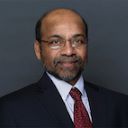
Prof. Vijayan Asari is the University of Dayton Ohio Research Scholars Endowed Chair in Wide Area Surveillance and a professor with the Department of Electrical and Computer Engineering. He is also the director of the Center of Excellence for Computational Intelligence and Machine Vision (Vision Lab). In 1996, he joined the National University of Singapore as a Research Fellow and led a team for the development of a vision-guided microrobotic endoscopy system. In 1998, he joined the School of Computer Engineering at Nanyang Technological University (NTU), Singapore, and led the computer vision and image processing research activities in the Center for High Performance Embedded Systems at NTU. In August 2000, Dr. Asari joined the Department of Electrical and Computer Engineering at Old Dominion University (ODU), Norfolk, Virginia, as a visiting associate professor. In 2001, at ODU, he accepted a tenure track position in electrical and computer engineering. He was tenured in 2006 and promoted to full professor in May 2007. At ODU, he was also the founding director of the Computational Intelligence and Machine Vision Laboratory. Dr. Asari joined the University of Dayton in February 2010. He has received many awards for his teaching, research and leadership including the Vision Award for Excellence in August 2017, Sigma Xi George B. Noland Award in April 2016, and the Outstanding Engineers and Scientists Award for Technical Leadership in April 2015. Dr. Asari has been selected as a Fulbright Specialist by the Fulbright Specialist Program of the U.S. Department of State’s Bureau of Educational and Cultural Affairs (ECA) and World Learning in August 2017. He was elected as a Fellow of SPIE (Society of Photo-Optical Instrumentation Engineers) in November 2018. Dr. Asari has published and co-authored with his graduate students and colleagues, more than 600 research articles, including an edited book on wide area surveillance and more than 100 peer-reviewed journal papers, in the areas of image processing, computer vision, pattern recognition, machine learning, deep learning and high performance digital system architecture design.

Professor Peter Han Joo Chong is the Associate Head of School (Research) at the School of Engineering, Computer and Mathematical Sciences, Auckland University of Technology, New Zealand. Between 2016 and 2021, he was the Head of Department of Electrical and Electronic Engineering at AUT. He received the B.Eng. (with distinction) in Electrical Engineering from the Technical University of Nova Scotia, Canada, in 1993, and the M.A.Sc. and Ph.D. degrees in Electrical and Computer Engineering from the University of British Columbia, Canada, in 1996 and 2000, respectively. He has visited Tohoku University, Japan, as a Visiting Scientist in 2010 and Chinese University of Hong Kong (CUHK), Hong Kong, between 2011 and 2012. He is currently an Adjunct Professor at the Department of Information Engineering, CUHK. He is a Fellow of the Institution of Engineering and Technology (FIET), UK. Prof. Chong is listed in the World's Top 2% Scientists published by Stanford University in 2022. Prof. Chong received the Research Excellence Award from the Faculty of Design and Creative Technologies in 2023. Before joining AUT in 2016, Professor Chong was an Associate Professor (tenured) from July 2009 to April 2016 and Assistant Professor from May 2002 to June 2009 at the School of Electrical and Electronic Engineering, Nanyang Technological University (NTU), Singapore. Between 2011 and 2013, he was the Assistant Head of Division of Communication Engineering. Between 2013 and 2016, he was the Director of Infinitus, Centre for Infocomm Technology. He was the recipient of ‘EEE Teaching Excellence Award’ and ‘Nanyang Award Excellence in Teaching’ in 2010, and ‘Nanyang Education Award (College)’ in 2015. In 2015, he became a Fellow of the Teaching Excellence Academy in NTU. From February 2001 to May 2002, he was with the Radio Communications Laboratory at Nokia Research Center, Finland. Between July 2000 and January 2001, he worked in the Advanced Networks Division at Agilent Technologies Canada Inc., Canada. He co-founded P2 Wireless Technology in Hong Kong in 2009 and Zyetric Technologies in Hong Kong, New Zealand and US in 2017.
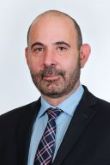
Dr Panos Liatsis is a Professor in the Department of Electrical Engineering and Computer Science at Khalifa University of Science and Technology. He received a Ph.D. degree in Electrical Engineering and Electronics from the University of Manchester, UK. Prior to joining Khalifa University, he was Department Chair and Professor at the Petroleum Institute, Head of Department of Electrical and Electronic Engineering and Professor at City, University of London, and faculty in the Department of Electrical Engineering and Electronics at the University of Manchester. Dr Liatsis’ research interests include machine learning, pattern recognition, and computer vision, with applications in biomedical image and signal processing, robotics, and intelligent transportation systems. He published over 350 research contributions in high-impact factor journals, books and international conference proceedings.

Prof. Dr. Robertas Damaševičius is Director at Centre of Real Time Computer System and Professor at Department of Software Engineering, Kaunas University of Technology, Kaunas, Lithuania. He received his Ph.D. degree in informatics engineering from the Kaunas University of Technology, Lithuania in 2005. Dr. Robertas Damaševičius is an Adjunct Professor at the Faculty of Applied Mathematics, Silesian University of Technology, Poland. He also lectures software maintenance, human–computer interface, and robot programming courses. Dr. Robertas Damaševičius is the author of more than 500 articles and a monograph published by Springer. His research interests include sustainable software engineering, human–computer interfaces, assisted living, and explainability. He is also the Editor-in-Chief of the Information Technology and Control journal. He has been the Guest Editor of several invited issues of international journals, such as BioMed Research International, the Journal of Healthcare Engineering, IEEE Access, Sensors, and Electronics.
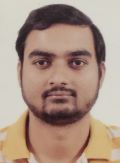
Dr. Tanmoy Chakraborty is ACM Distinguished Speaker and Associate Professor in the Department of Electrical Engineering at the Indian Institute of Technology Delhi (IIT Delhi), India. Additionally, He serves as an associate faculty member at the Yardi School of Artificial Intelligence, IIT Delhi. He is an ACM Distinguished Speaker (2023-2025). He was a Ramanujan Fellow from 2018-2023. Before joining IIT Delhi, he served as an Assistant Professor (May 2017 - Dec 2021) and an Associate Professor (Jan 2022 - Sep 2022) in the Dept of CSE at IIIT Delhi, India. He also served as the head of the Infosys Centre for AI (CAI) at IIIT Delhi. He obtained his PhD as a Google PhD scholar from the Dept. of CSE, Indian Institute of Technology, Kharagpur, India, in September 2015. Following this, he joined the University of Maryland, College Park, as a Postdoctoral Researcher. His broad research interests include Natural Language Processing, Graph Neural Networks, and Social Computing. His current research primarily focuses on enriching frugal language models (reasoning, knowledge grounding, prompting, editing, etc.) and applying them to various applications, including mental health and Cyber-informatics.
Workshop
Workshop: 01
Title: Artificial Intelligence and Quantum Computing
IBM Resource Persons, IBM Research Lab, India
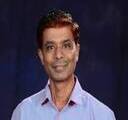
Venkat is working as IBM Quantum India Leader at IBM Research Lab, New Delhi. He received the B.E. degree in Electronics and Communication Engineering from Mysore University, the M.S. degree in Electrical Engineering from Washington University, St. Louis, USA, and the Ph. D. degree in Electronics from the Indian Institute of Technology, New Delhi, India. He joined IBM Research India in 1998 where He currently lead a team of world class researchers developing Neuro Symbolic AI and Quantum AI technologies. He is also an IBM Master Inventor. He is on the Board of Studies of DAIICT, Gandhinagar, since 2020. He was on the Senate of IIIT Delhi 2013-2015. He has been on PhD thesis committees in IIT Madras, India, DAIICT, India, IIT Delhi, India, Univ of Maryland, Baltimore County, USA, and IIIT Delhi, India.
Paper Submission
A. Guidelines for Paper Submission
(1) Authors are invited to submit their paper electronically using a Procedia Computer Science template written in English, with a length of up to 10 pages, a full paper presenting the results of original research or an innovative paper, and a short paper that is partially completed with a theoretically established idea to practical applications relevant to the conference. Over the ten (10) page limit, additional pages per paper will be charged. Authors are requested to prepare manuscript in Procedia Computer Science, Journal Template and submit it.
Special Session
| S.no | Session ID | Details of Special Session | |
| 1. | ICMLDE2024.001 | Topic | Unleashing strength of Deep Learning and Artificial Intelligence in Computer Vision and Processing |
| Session Chairperson | Dr Rimjhim Padam Singh | ||
| Co Chairs | Dr. Richa Makhijani and Dr. Garima Singh | ||
| Organization | Amrita School of Computing, Amrita Vishwa Vidyapeetham, India Indian Institute of Information Technology, Nagpur, India Thapar Institute of Engineering and Technology, Patiala |
||
|
ps_rimjhim@blr.amrita.edu richa.makhijani@iiitn.ac.in garima.singh@thapar.edu |
|||
| 2. | ICMLDE2024.002 | Topic | Advances in Optimization and Scalability of Machine Learning Models |
| Session Chairperson | Dr. Kanika Bhalla | ||
| Co Chairs | Dr. Deepika Koundal | ||
| Organization | Washington University School of Medicine in St. Louis, US UPES, India |
||
|
bhalla@wustl.edu dkoundal@ddn.upes.ac.in; |
|||
| 3. | ICMLDE2024.003 | Topic | Advances and Techniques in Deep Learning: Optimization, Architecture, and Generative Models |
| Session Chairperson | Dr. Velliangiri Sarveshwaran and Dr Karthikeyan Periyasamy | ||
| Co Chairs | |||
| Organization | National Chung Cheng University, Chiayi, Taiwan SRM Institute of Science and Technology, Kattankulatur Campus, Tamil Nadu, India |
||
| velliangiris@gmail.com | |||
| 4. | ICMLDE2024.004 | Topic | Advanced Techniques and Applications in Machine Learning and Data Engineering |
| Session Chairperson | Dr. K. Suresh Manic | ||
| Co Chairs | Dr Feras Al Attar and Dr. V. Rajinikanth | ||
| Organization | National University of Science and Technology, Oman SIMATS Deemed University, Chennai, India |
||
|
sureshmanic@nu.edu.om ferasalattar@nu.edu.om v.rajinikanth@ieee.org; |
|||
| 5. | ICMLDE2024.005 | Topic | Deep Learning and data Engineering for knowledge discovery |
| Session Chairperson | Dr. Akansha Singh and Dr. Krishna Kant Singh | ||
| Co Chairs | |||
| Organization | Bennett University, India Delhi Technical Campus, Greater Noida |
||
| akanshasing@gmail.com | |||
| 6. | ICMLDE2024.006 | Topic | Evolving Smart Technologies in Data Engineering |
| Session Chairperson | Dr. Meenakshi Sood and Dr.Shruti Jain | ||
| Co Chairs | |||
| Organization | National Institute of Technical Teachers Training & Research, Ministry of Education, Chandigarh, India Jaypee University of Information Technology, India |
||
|
meenakshi@nitttrchd.ac.in shruti.jain@juitsolan.in |
|||
| 7. | ICMLDE2024.007 | Topic | Frontiers in Machine Learning: Innovations and Applications |
| Session Chairperson | Dr. Shubham Mahajan | ||
| Co Chairs | |||
| Organization | Ajeenkya D Y Patil University, Pune, India | ||
| mahajanshubham2232579@gmail.com | |||
| 8. | ICMLDE2024.008 | Topic | Interpretability and Human-Computer Interaction in Machine Learning |
| Session Chairperson | Dr. Mohit Mittal | ||
| Co Chairs | Dr. Swadha Gupta | ||
| Organization | Shiratech-Knowtion GmbH, Germany | ||
|
mohitmittal@ieee.org swadhagupta15@gmail.com |
|||
| 9. | ICMLDE2024.009 | Topic | Application on federated learning on healthcare, cloud, fog and Edge computing |
| Session Chairperson | Dr Anjan Bandyopadhyay | ||
| Co Chairs | Dr. Sujata Swain | ||
| Organization | Kalinga Institute of Industrial Technology, Bhubaneswar, Odisha | ||
|
anjan.bandyopadhyayfcs@kiit.ac.in sujata.swainfcs@kiit.ac.in |
|||
| 10. | ICMLDE2024.010 | Topic | Exploring Emerging Applications and Trends for the Future of AI |
| Session Chairperson | Dr. Anchit Bijalwan | ||
| Co Chairs | Dr. Donie Jardeleza | ||
| Organization | British University, Vietnam | ||
|
anchit.b@buv.edu.vn donie.j@buv.edu.vn |
|||
| 11. | ICMLDE2024.011 | Topic | Recent Advancements in AI, Machine Learning & Deep Learning based Applications |
| Session Chairperson | Dr. Rajkumar R | ||
| Co Chairs | Dr. E. Sathiyamoorthy and Dr. Jolly Masih | ||
| Organization | VIT University, Vellore, India BML Munjal University, Gurugram, India |
||
|
vitrajkumar@gmail.com esathiyamoorthy@vit.ac.in |
|||
| 12. | ICMLDE2024.012 | Topic | Intelligent Computing in HealthCare |
| Session Chairperson | Dr. Debabrata Singh, Prof. Bibhudatta Sahoo and Dr. Nibedan Panda | ||
| Co Chairs | |||
| Organization | Siksha ‘O’ Anusandhan (Deemed to be University), Bhubaneswar, India National Institute of Technology, Rourkela, India KIIT Deemed to be University, Bhubaneswar,India |
||
|
debabratasingh@soa.ac.in bdsahu@nitrkl.ac.in nibedan.pandafcs@kiit.ac.in |
|||
| 13. | ICMLDE2024.013 | Topic | Natural Language Processing for Smart Healthcare |
| Session Chairperson | Dr. Hiren Kumar Thakkar | ||
| Co Chairs | Dr. Djeane Debora Onthoni and Dr. Hiren Mewada | ||
| Organization | Pandit Deendayal Energy University, Gandhinagar, Gujarat, India National Health Research Institutes, Zhunan, Taiwan Prince Mohammad Bin Fahd University, Saudi Arabia |
||
|
hiren.pdeu@gmail.com Djeane@nhri.edu.tw hmewada@pmu.edu.sa |
|||
| 14. | ICMLDE2024.014 | Topic | Advancements in Computing with Machine Learning, IOT, Real-Time, Big data |
| Session Chairperson | Dr. Chaman Verma | ||
| Co Chairs | Dr. Deepak Kumar and Dr. Zoltan Illes | ||
| Organization | Eötvös Loránd University, Hungary Chandigarh University, India Eötvös Loránd University, Hungary |
||
|
chaman@inf.elte.hu Deepak.e11296@cumail.in illes@inf.elte.hu |
|||
| 15. | ICMLDE2024.015 | Topic | Intelligent Vehicles and Next-Gen Communication: Exploring the Nexus of AI, ML, and Autonomous Technology |
| Session Chairperson | Dr. Arun Kumar | ||
| Co Chairs | Dr. Vinay Anand Tikkiwal | ||
| Organization | National Institute of Technology, Rourkela, India Jaypee Institute of Information Technology, Noida, India |
||
|
kumararun@nitrkl.ac.in vinay.anand@jiit.ac.in |
|||
| 16. | ICMLDE2024.016 | Topic | Optimization of deep neural network in medical informatics |
| Session Chairperson | Dr Shruti Garg | ||
| Co Chairs | Dr Suchismita Das and Dr Neha Prerna Tigga | ||
| Organization | Birla Institute of Technology, Mesra, Ranchi, India KIIT Deemed to be University, Bhubaneswar, India National Institute of Technology, Jamshedpur, India |
||
|
gshruti@bitmesra.ac.in; tigganeha4@gmail.com |
|||
| 17. | ICMLDE2024.017 | Topic | Generative model and Large Language Models |
| Session Chairperson | Dr Sushila Palwe and Dr Bharati Dixit | ||
| Co Chairs | |||
| Organization | Dr. Vishwanath Karad MIT World Peace University, Pune, India | ||
|
sushila.palwe@mitwpu.edu.in bharati.dixit@mitwpu.edu.in |
|||
| 18. | ICMLDE2024.018 | Topic | Image Processing in the healthcare system |
| Session Chairperson | Dr. Bilal OZTURK | ||
| Co Chairs | Dr. Hayder Mohammed Qasim | ||
| Organization | Istanbul Aydin University. Istanbul, Turkey | ||
|
bilalo@aydin.edu.tr hmohammedqasim@aydin.edu.tr |
|||
| 19. | ICMLDE2024.019 | Topic | Recent Advancements for Next-Gen Image Information Processing using Machine learning and Deep Learning |
| Session Chairperson | Dr. P.K. Gupta | ||
| Co Chairs | Dr. Mohammad Khubeb Siddiqui and Dr. Rubén Morales Menéndez | ||
| Organization | Mohan Babu University, Tirupati, AP, India IBM Australia, Australia Tecnológico de Monterrey, Mexico |
||
|
pkgupta@ieee.org khubeb@ieee.org rmm@tec.mx |
|||
| 20. | ICMLDE2024.020 | Topic | IoT and Machine Learning Innovative Solutions for Forth Industrial Revolution Healthcare |
| Session Chairperson | Prof. Matthew O Adigun | ||
| Co Chairs | Sunday A. Ajagbe | ||
| Organization | University of Zululand, South Africa | ||
|
adigunm@unizulu.ac.za saajagbe@pgschool.lautech.edu.ng |
|||
| 21. | ICMLDE2024.021 | Topic | Revolutionizing Healthcare with IoT, Deep Learning, and Cloud Computing |
| Session Chairperson | Dr. Puneet Sharma Dr. Shri Krishna Pandey |
||
| Co Chairs | |||
| Organization | SR University, Warangal, Telangana, India Manipal Academy of Higher Education (MAHE), Dubai |
||
|
dr.puneetsharma9@gmail.com skpandey@manipaldubai.com |
|||
| 22. | ICMLDE2024.022 | Topic | Emerging trends in Machine Learning and Deep Learning |
| Session Chairperson | Dr. Sudeep Tanwar, Dr. Jitendra Bhatia and Dr. Joel J.P.C. Rodrigues | ||
| Co Chairs | Dr Navin Kumar, Dr Shilpa Gite, Dr Uttam Chauhan and Dr Nilesh Patel | ||
| Organization | Nirma University, Ahmedabad, Gujarat, India Amazonas State University, Manaus, Brazil Indian Institute of Information Technology Vadodara, India Symbiosis Institute of Technology, Pune, India Gujarat Technological University, India Jaypee University, Guna, India |
||
|
sudeep.tanwar@nirmauni.ac.in jitendra.bhatia@nirmauni.ac.in; joeljr@ieee.org naveen_kumar@iiitvadodara.ac.in; shilpa.gite@sitpune.edu.in |
|||
| 23. | ICMLDE2024.023 | Topic | Cutting-Edge Research in Biometrics using Machine Learning |
| Session Chairperson | Dr. Gururaj H L | ||
| Co Chairs | Dr. Francesco Flammini and Dr. Shreyas J | ||
| Organization | Manipal Academy of Higher Education, Manipal, India IDSIA USI-SUPSI, University of Applied Sciences and Arts of Southern Switzerland, Switzerland |
||
|
gururaj.hl@manipal.edu francesco.flammini@mdu.se |
|||
| 24. | ICMLDE2024.024 | Topic | Advances in deep learning for Earth observation data |
| Session Chairperson | Dr. Gopal Singh Phartiyal and Dr. Shubham Awasthi | ||
| Co Chairs | |||
| Organization | University of Leeds, UK IIT Roorkee, India |
||
|
G.S.Phartiyal@leeds.ac.uk sawasthi@dm.iitr.ac.in |
|||
| 25. | ICMLDE2024.025 | Topic | Applications of Generative ML Algorithms in Education |
| Session Chairperson | Dr. Anjali Munde | ||
| Co Chairs | Chandan Kumar Jha | ||
| Organization | University of Southampton, Malaysia Profitability Analytics Center of Excellence, New York, USA |
||
| a.munde@soton.ac.uk | |||
| 26. | ICMLDE2024.026 | Topic | Innovation through Machine Learning: Adoption and Impact |
| Session Chairperson | Hamed Taherdoost | ||
| Co Chairs | |||
| Organization | University Canada West, Canada | ||
| Hamed.taherdoost@gmail.com | |||
| 27. | ICMLDE2024.027 | Topic | Federated Learning for Real Time IoMT-based Edge Computing |
| Session Chairperson | Dr T. Poongodi | ||
| Co Chairs | Dr R. Gopal and Dr M Kiruthika | ||
| Organization | Dayananda Sagar University, Karnataka, India University of Buraimi, Al Buraimi, Oman SRM Institute of Science and Technology, Kattankulathur, India |
||
|
tpoongodi2730@gmail.com rgopalkarur@gmail.com kiruthikats@gmail.com |
Registration
| Category | Registration Deadline(As per notification on or before 30 October 2024) |
| INDIAN DELEGATES (INR) | |
| Regular Author | 11000 |
| Students Author | 10500 |
| Industry Professional | 12500 |
| 2nd paper, Regular Author | 10000 |
| Listener (Non-Author/Co- Author/General Participants) | 5000 (per person) |
| INTERNATIONAL DELEGATES (US $) | |
| Regular Author | 350 |
| Students Author | 300 |
| 2nd paper, Author from other countries | 250 |
| Listener (Non-Author/Co- Author/General Participants) | 150 |
| WORKSHOP | |
| Registered Authors of ICMLDE 2024 (Certificate will be provided for all the participants) |
Free |
| Non-Author/General Participants | 4000(Indian Rupees)per person |
1. Details on how to pay the registration fee through wire transfer are provided to participants.
2. Delegates/authors paying by wire transfer should use the following account information and submit their bank transaction slip and other pertinent information to info@icmlde.org.
| Name of Beneficiary | ICMLDE CONFERENCE |
| Name of the Bank | YES Bank |
| Branch Name | IFC, 8th Floor Sb Marg, Mumbai |
| Complete Postal Address | Yes Bank Tower, IFC2, 8th Floor Sb Marg Elphinstone, Mumbai, 400013 |
| Account No. of Beneficiary | UPESUK877777852 |
| IFSC Code | YESB0CMSNOC |
| Type of Account | Savings |
| NOTE: | [Make a NEFT Transaction only] |
| Name of Beneficiary | UPES |
| Purpose | ICMLDE CONFERENCE |
| Name of the Bank | YES Bank |
| Account No. of Beneficiary | 011594600000224 |
| Branch Code | 000115 |
| Branch IFSC Code | YESB0000115 |
| Swift Code | YESBINBB |
| Type of Account | Savings |
| Complete Postal Address | Ground Floor, 56, Rajpur Road, Dehradun, Uttarakhand, India- 248001 |
Sponsorship
Sponsorship of ICMLDE-2024 will provide a unique opportunity for an organization or company to increase its visibility and product awareness within a highly specialized, influential community. For ICMLDE-2024 sponsorship opportunities please contact to organizer: info@icmlde.org
| Gold Sponsor (Rs 2 Lakh) |
 |
BENEFITS:
|
| Silver Sponsor (Rs 1 Lakh) |
 |
BENEFITS:
|
| Bronze Sponsor (Rs 0.5 Lakh) |
 |
BENEFITS:
|
Contact Us
For Enquiry :
Dr. Vijendra Singh
Organizing Chairs
School of Computer Science,
UPES,
Bidholi Via-Prem Nagar
Dehradun-248007
Email id: info@icmlde.org;
vijendra.singh@ddn.upes.ac.in
Whatsapp: 8800642397
